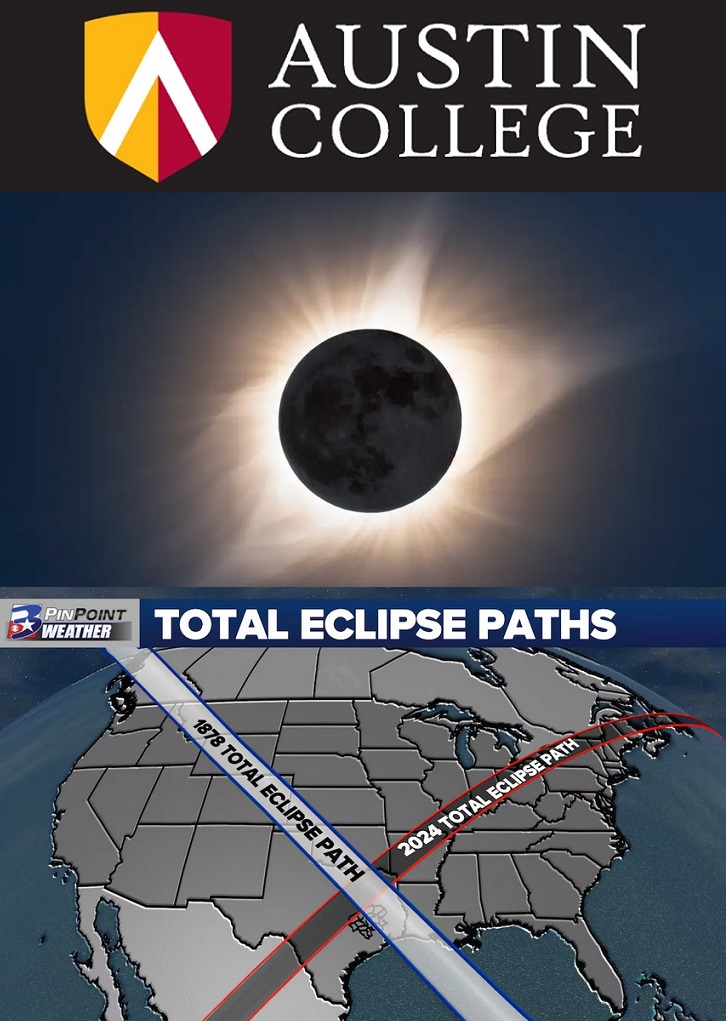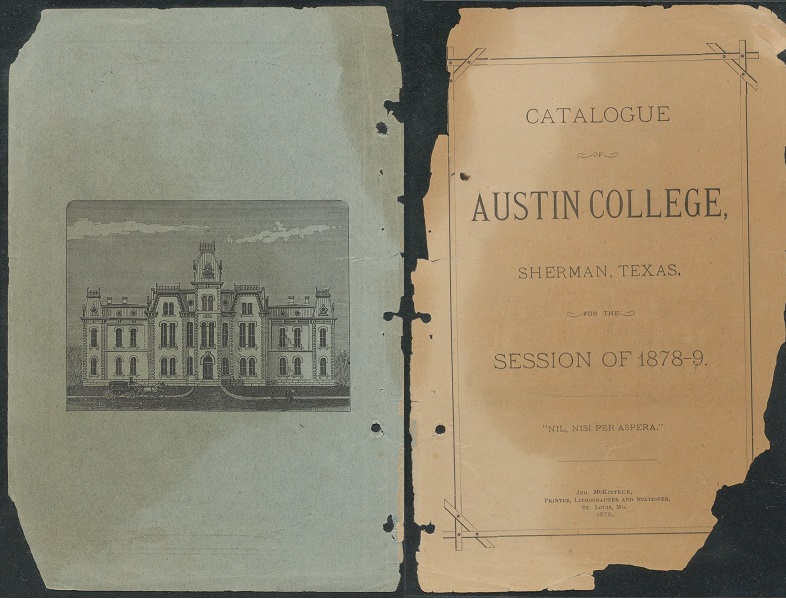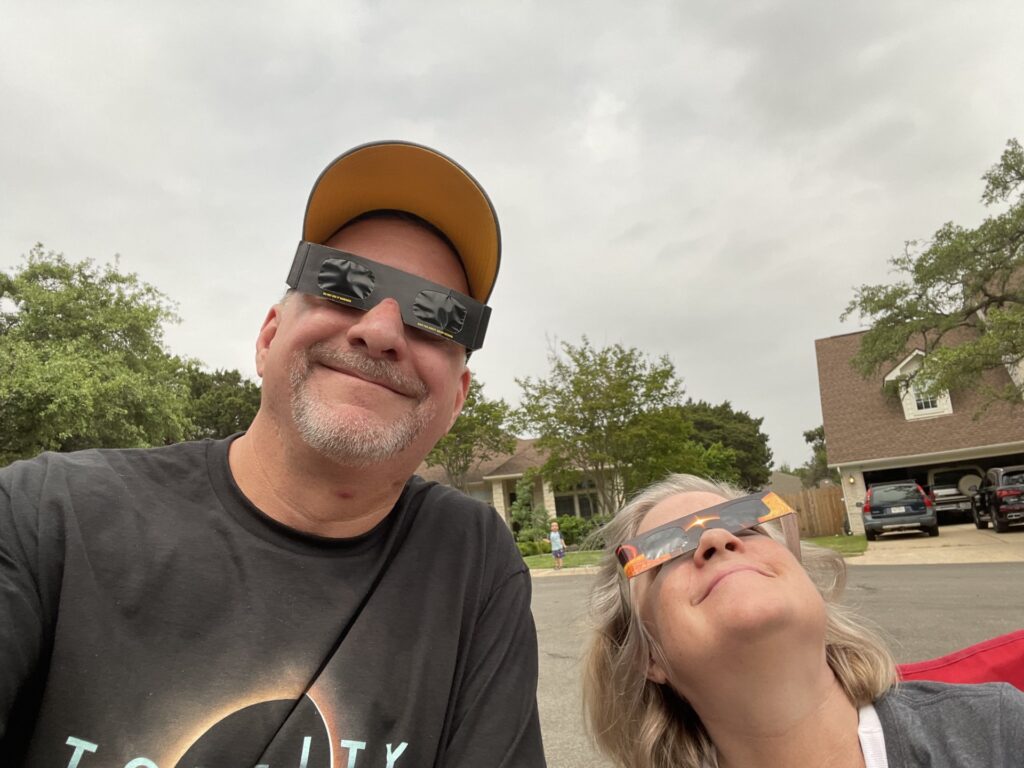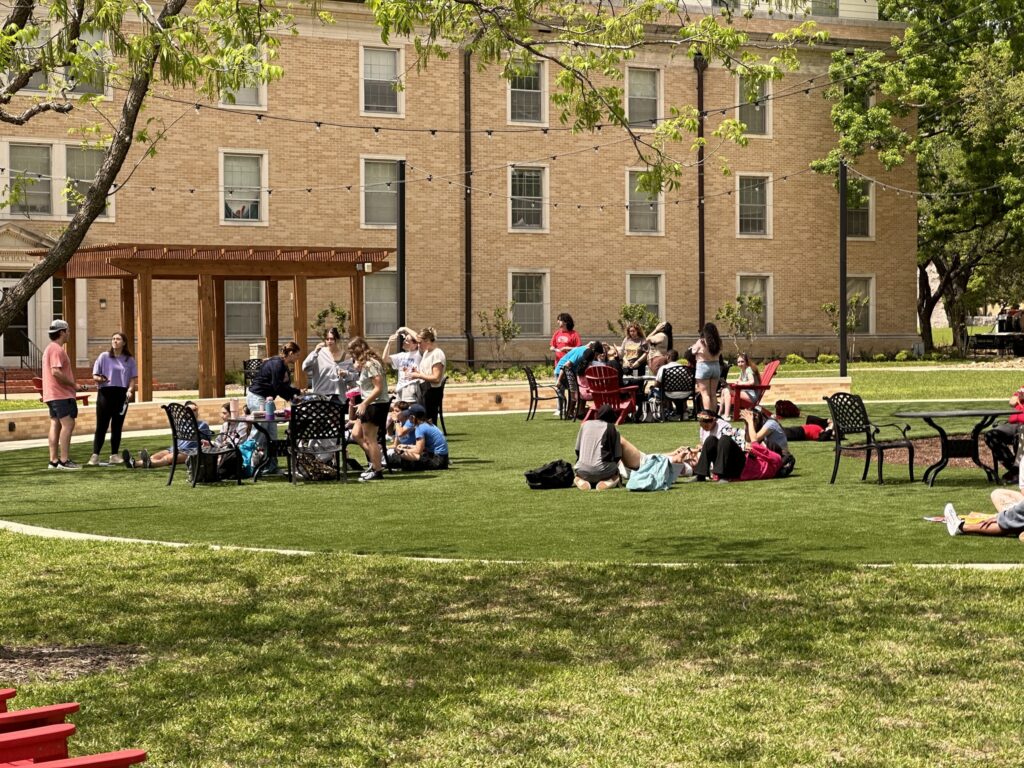
Want a fun stat? Here are the number of “TOTAL Solar Eclipses” experienced by colleges in the state of Texas BEFORE April 8, 2024:
Austin College: 1
Trinity University: 1
All other Texas colleges: 0
Eclipses happen with some regularity. But total solar eclipses are rare, occurring briefly within a narrow band and only when the moon is close enough to the Earth to achieve 100% totality. Total solar eclipses in Texas are even rarer; the last time one traveled through the Lone Star state was on July 29, 1878.
Austin College (est. 1849 in Huntsville) had recently arrived in that eclipse’s 1878 path of totality, moving to Sherman in 1876. Trinity University (est. 1869 in Tehuacana) was also in the path of the eclipse. Baylor (Waco), TCU (also Waco!), Southwestern (Georgetown), St. Edward’s (Austin), and Texas A&M (Bryan) were located outside of the path. No other colleges existed in Texas in 1878.
The 1878 total eclipse is famous, as it was the first to be observed by scientists and anticipated by an American public in an era of mass media. Huge numbers journeyed west by rail and coach to catch a glimpse of the well-publicized event. One of the young scientists who made the trip was a young Thomas Edison. The events of the 1878 eclipse are told in the book “American Eclipse,” by David Baron.
Life on AC’s campus was spartan in 1877. No current campus buildings existed, and classes were initially held in a temporary building near downtown Sherman. But in 1878, construction on AC’s first building (Old Main) reached a fever pitch. Old Main was completed in the summer of 1878, just as the total solar eclipse rolled over campus. From “Austin College: A Sesquicentennial History,” by Dr. Light Cummins:
“Work on the college building [Old Main] progressed at a rapid pace. It was essentially completed by the end of the summer [of 1878]. Built in grand Victorian Style, this two-story building sat in the center of College Hill (north of the current Admin building), a small knoll that rose about five feet above the surrounding area in the middle of the ten-acre campus.”
“[AC President Henry] Boude prepared for the formal opening of Austin College on its new campus. Festivities were planned for [the summer of] 1878. The following day….would see the start of classes on the new campus. The event took place as planned, [marking] a milestone in the history of Austin College.”
50 Roo students attended those first classes on campus in 1878, just days after observing the most recent total solar eclipse to visit the state of Texas. A north Texas newspaper described that 1878 eclipse in vivid detail:
“The eclipse was truly grand and beautiful. During the day, part of the sun was occasionally obscured by clouds. But five minutes before it became total, the clouds moved away and the sun was [in] a clear, blue sky. And while the eclipse was total the sight was magnificent. Stars were plainly visible, and a beautiful twilight covered the sky.”
Sadly, the forecast for much of Texas on April 8, 2024, is cloudy. But take heart Texans. Atmospheric scientists have written (see the comments) that due to cooling conditions caused by the eclipse, many clouds may briefly disappear just before its arrival. The description of the 1878 “Roo eclipse” above, when “the clouds moved away” five minutes before arrival, seems to confirm the effect.
Old Main is no more, and all 50 Roo students in 1878 have long since departed this Earth. But a piece of 1878 AC history remains. It’s the 1878 Austin College course catalogue, which lists trustees, faculty, students, and class options (including Astronomy!). The catalogue displays a drawing of Old Main in front of a nearly cloud free sky, perfect for viewing that year’s eclipse.
The path of the 2024 total eclipse will cover a populated swath of Texas. For younger colleges, this total eclipse will be their first. It will also be a first for older schools such as Baylor, TCU, Southwestern, and St. Edwards (sorry Aggies, NASA says you’ll have to wait until the year 2317). But for Presbyterian cousins Trinity and Austin College, this eclipse will be a “been there, done that” just like old times back in 1878.
On April 8, 2024, Roo students will likely gather at the Clyde Hall Graduation Court (on the former site of Old Main) to observe the event. When it’s over, they’ll be back to their studies. Well shoot, that’s the same doggone thing AC students were doing on campus nearly 150 years ago. We Kangaroos checked out a total solar eclipse. And then we went to class.


https://time.com/4880606/total-solar-eclipse-history-1878
https://www.mysanantonio.com/lifestyle/article/texas-eclipse-1878-19374921.php

